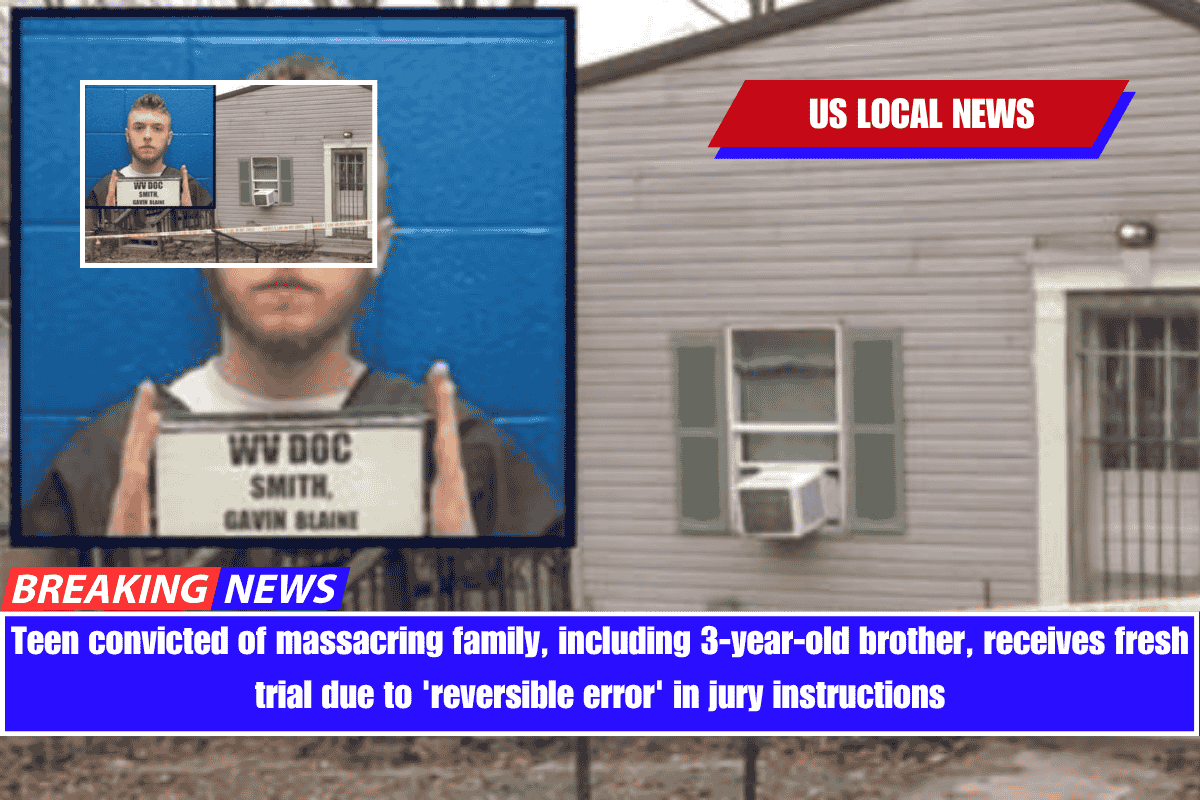Gavin Smith, a 21-year-old man from West Virginia who was previously convicted of killing his mother, stepfather, and two younger brothers, will face a new trial after the state’s Supreme Court of Appeals vacated his convictions on three counts of first-degree murder and one count of second-degree murder in the 2022 slayings. His conviction for one count of using a firearm in the commission of a felony was also overturned.
A five-judge panel on the state’s highest court voted 4-1, ruling that the trial judge made a “reversible error” by incorrectly informing the jury that because Smith was a minor at the time of the murders, if he was found guilty of first-degree murder, he would be automatically eligible for parole after serving 15 years of his sentence.
Smith was 16 years old when he allegedly fatally shot Daniel Dale Long, 37, Risa Mae Saunders, 39, Gage Ripley, 12, and Jameson Long, 3.
The problem first surfaced during the testimony of Rebecca Walker, Smith’s girlfriend at the time of the shootings. Walker, then 17, had also been arrested and charged with multiple counts of first-degree murder, but he reached an agreement with prosecutors and pleaded guilty to four counts of accessory after the fact to first-degree murder. The agreement included a maximum sentence of ten years in prison and required her to testify against Smith during his trial.
During her testimony, Walker stated that she was facing a possible life sentence for first-degree murder before pleading guilty. The state objected, claiming that “the jury was left with the erroneous impression that Mr. Smith would ‘be locked up for the rest of his life’ if convicted of first-degree murder.”
Following the conclusion of the evidence, the state argued that jurors were confused by Walker’s testimony about her potential sentence and the court’s explanation that juveniles convicted of first-degree murder in the state are eligible for parole after 15 years.
“[R]ight now the jury may think that he can only get 15 years for first-degree murder, and we’re concerned that the jury would be confused about that,” the attorney general said. The judge granted prosecutors’ request to explicitly instruct the jury that Smith faced a potential life sentence and would only be “eligible” for parole after 15 years.
Smith’s defense attorney objected, claiming that jurors were “supposed to be considering the facts, not the sentence,” and that the jury instruction “puts it right out there for them to be thinking about sentences.”
The court’s majority agreed with Smith’s counsel, stating that jurors cannot consider “sentencing issues or other related issues that may flow from sentencing, such as parole or probation, when deliberating a verdict during a criminal trial.” In other words, the court stated that “questions pertaining to parole rights are not germane to the question of guilty or innocence.”
“While the State attempts to argue that Mr. Smith was not prejudiced by this instruction, other than describing the elements for first- and second-degree murder, the State cites to no law to support its contention that Mr. Smith suffered no prejudice,” the ruling read. “Despite attempting to argue that there was no prejudice, the State conceded that this penalty instruction ‘likely alleviated any jury question that someone who had not yet reached the age of 20 would not be forced to spend his entire life in prison with no hope of parole.'”
“In other words,” the judge wrote, “this improper instruction eased any concern the jury may have had about forcing a juvenile to spend the rest of his life in prison.”
As previously reported by Law&Crime, Smith’s grandfather discovered the family murdered on December 13, 2020, in their home on the 1300 block of Cemetery Hill Drive in Elkwood, West Virginia. Each had received fatal gunshot wounds. According to authorities, the murders were most likely motivated by Smith’s family’s refusal to let him see Walker.
Walker also admitted that he encouraged Smith to kill his family.
Smith has not denied that he killed his family. His defense has centered on arguing that he did not “form the requisite intent to be convicted of first-degree murder,” according to court documents.









